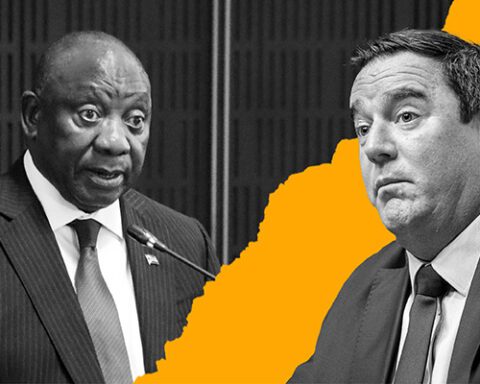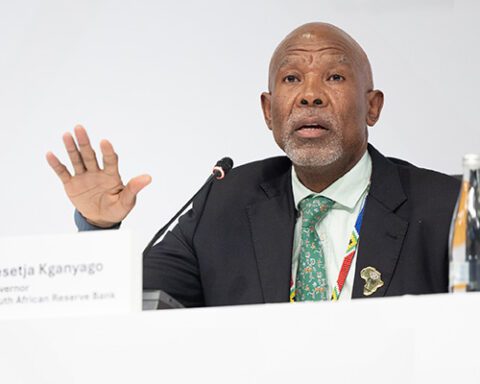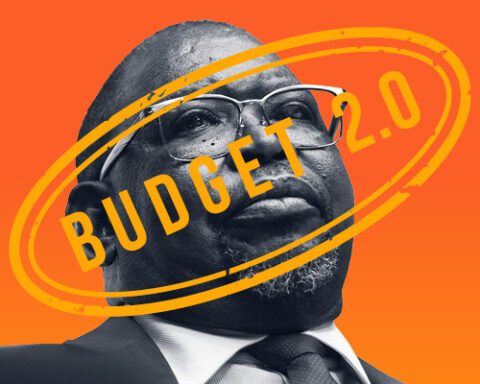Though finance minister Enoch Godongwana, and his predecessor Tito Mboweni, made attempts in recent years to wrestle down the state’s wage bill, it still represents a large chunk of government spending – some 32.1% last year.
But it is a difficult dance. When Mboweni in his 2021 budget announced a three-year wage freeze for everyone employed by the state, the markets loved him for it. It was a rational choice that would help lower expenditure by R265bn over that period and stabilise public finances, many commented.
Trade union leaders, however, liked it about as much as heartburn and manoeuvred quickly to ensure he achieved, at best, limited success.
So, what is a cash-strapped fiscus (in a time of transition, where power sharing is the name of the game) to do? Well, in the early 1990s the state offered tens of thousands of civil servants the option to cash in their chips and move on to the private sector. Many took the deal, from railway workers, to police officers, primary school teachers, and pencil pushers in the murky bureaucracy of downtown Pretoria.
Now, Godongwana has set aside R11bn over the next two years to ensure that civil servants can go into early retirement without being penalised for doing so.
This latest push is “not to merely reduce the size of the workforce, but also to introduce younger talent to the public service”, he said in the medium-term budget policy statement (MTBPS) on Wednesday.
Sure, there are other big numbers in the budget – such as the gaping hole in Eskom’s finances or the multibillion-dollar pile-up that is the Road Accident Fund – but the salary bill is something the fiscus can actually do something about. And there is plenty of fat to trim.
Public servants, in general, have it good. Over the past three decades, their pay and additional benefits, such as pensions, medical and housing subsidies, bonuses and other forms of compensation, have grown rapidly.
By last year, the average monthly remuneration for a public service employee was R41,200, compared to R26,800 for the private sector, according to the MTBPS.
And this adds up: public servants account for 12.6 % of the workforce and they have an average cost-to-company of nearly R500,000 per year.
It’s little wonder, then, that the public service wage bill has ballooned as a share of the economy: from 5.6% of GDP in 1995 to 10.4% last year.
More to the point, South Africans are entirely justified in asking what they’re getting for paying these salaries. Dams of ink have been expended in lamenting the shortcomings of service delivery in South Africa and decrying how bloated the civil service is.
But while citizens don’t get good value for their tax money, and there are many problems in the public sector, the issue is not so much with the number of employees, but their composition.
“[T]hese higher average remuneration costs have become more expensive over time, hindering government’s ability to effectively grow the public service headcount due to affordability constraints,” reads the MTBPS.
In other words, the government is happy to employ more people, as long as they cost less. Luckily, younger workers are often less costly to put on the payroll than experienced types.
Spiralling out of control
How did we even get here in the first place?
Think back to those halcyon days of South Africa’s early 2000s growth miracle. Remember the 4% (or even 5%) annual growth in GDP before load-shedding in 2008 dampened the flame, and the turbulent times of the global financial crisis snuffed it out for good?
Those were the years of fat performance bonuses in the private sector. And by 2007, the paymasters in government were so worried about an exodus of public servants – meandering off to graze the greener pastures of free enterprise – that they did the predictable thing and came up with a new abbreviation: OSD.
This shorthand for occupation-specific dispensation was designed to “retain skilled professionals through competitive salaries, allowances, benefits and other progression opportunities”. Or as someone more direct might have put it: “Don’t leave for the rigours of the private sector; we’ll match it right here in the laid-back public service.”
National Treasury now concedes the new remuneration regime created some problems.
“While OSDs were necessary at the time to address wage disparities and retain skilled professionals, they added significant pressure to the public service wage bill during a time of fiscal strain,” it writes.
This was the catalyst that accelerated the chemistry, alchemy even, of turning public service lead into gold.
In the years since, it has spiralled out of control. Since 2019, the median monthly public service earnings have exceeded those of the national average by at least 50%, according to the budget documents.
But if this is where we are, how many people would want to retire early?
Treasury director-general Duncan Pieterse stressed that it would indeed be voluntary. Employees would have to opt in and executives would have to approve this request, he told reporters in the nation’s capital.
Still, Treasury is aiming for about 30,000 people to take the deal. Which isn’t much compared to the 1.2-million who work for the state in some form or another. But it’s a start.
While Mboweni’s approach was head-on, Godongwana is clearly using a stealthier method to shave billions off the state’s wage bill. And it comes at an opportune time – wage negotiations for the next three-year cycle are under way, and Treasury expects these to be concluded “by the time of the 2025 budget”.
If this succeeds as Godongwana hopes, it’ll be a strategically savvy way to slice the wage bill without much friction.









